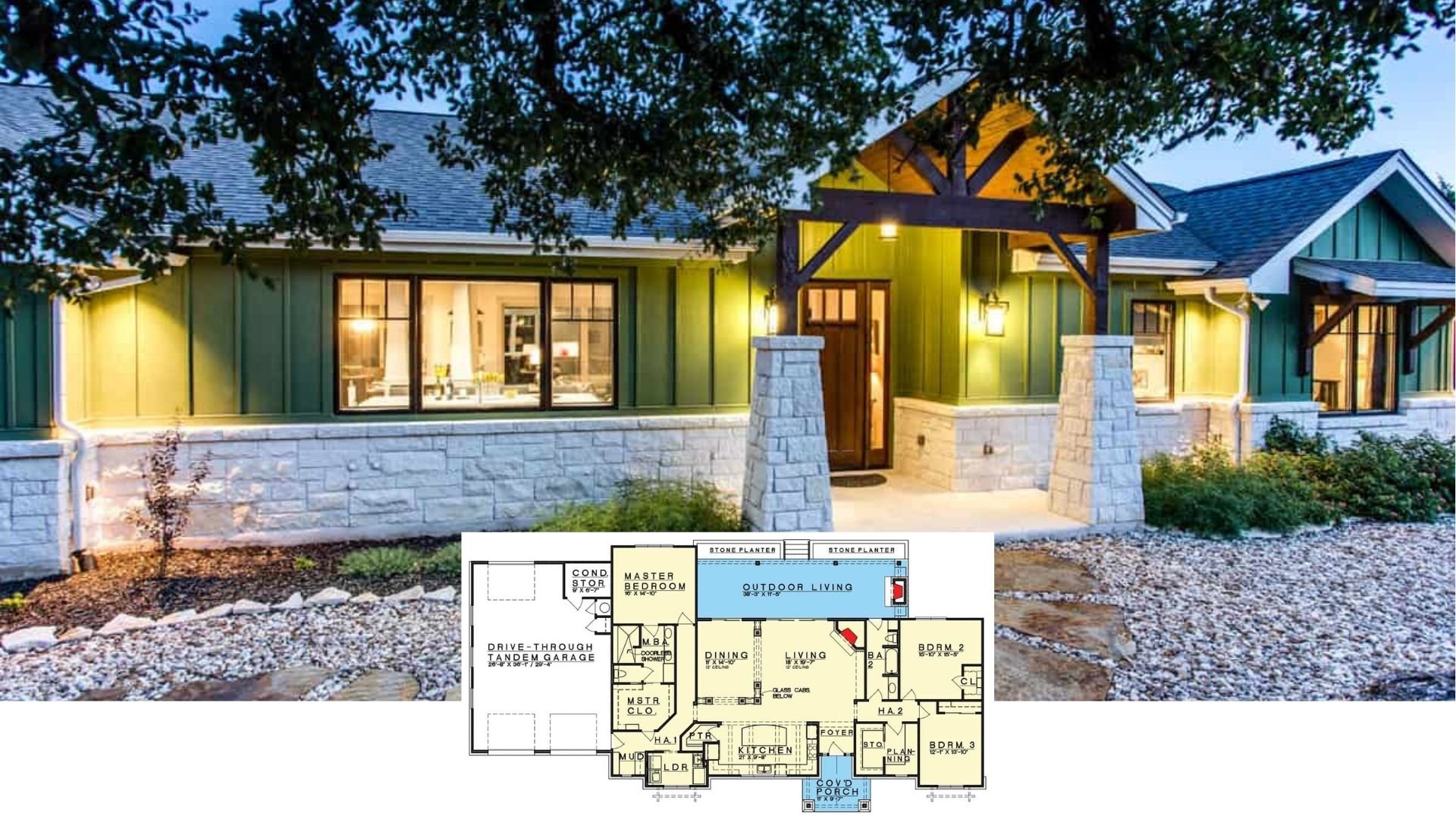I live in the suburbs; it’s a burb 20 minutes outside of downtown Vancouver. It’s a desirable area. People are moving to our area in droves. Prices go up and yet despite all of this, there are some crazy absurdities about choosing to live in the suburbs. I can’t deny it and therefore I just had to write this article. Please keep in mind that my “absurdities” series is part fun so don’t take it too seriously. The fact is there are pros and cons to every living situation. Enjoy this list. What do you think?
15. Way Fewer Dining, Shopping and Entertainment Options (Nearby)

Suburban life tends to come with fewer choices for dining and shopping, especially if you’re looking for unique or boutique experiences. You’ll likely find chain stores and big-box retailers dominating the landscape, which can be convenient but uninspiring. Specialty shops, farmer’s markets, or independent restaurants might require a trip into the city. For those who enjoy trying new foods or supporting local businesses, the lack of variety in the suburbs can feel limiting. It’s easy to fall into a repetitive routine when your options are so predictable.
14. Relatively High Property Taxes

Suburban property taxes can be surprisingly high, often because the local government funds public services like schools, road maintenance, and public safety. While you might think moving out of the city means lower living costs, hefty property taxes can offset some of that savings. This is especially true in desirable suburban neighborhoods with good schools and well-maintained infrastructure. Over time, these recurring expenses can become a burden, particularly for homeowners on a budget. It’s a hidden cost that many overlook when making the move.
13. It’s Horrible for Walking and Walkability

One of the major downsides of suburban life is that most areas aren’t designed for walking. Unlike cities where everything is tightly packed and walkable, the suburbs are sprawling and require a car for most errands. Even something as simple as taking a walk to the park or grabbing a coffee can feel inconvenient without driving. If you’re someone who enjoys strolling through vibrant neighborhoods or prefers an active lifestyle, the car-centric design of the suburbs can feel restrictive. Walking trails might exist, but they usually don’t connect you to useful destinations.
12. Teenagers and Young Adults Experience Higher Social Isolation

The suburban lifestyle tends to cater more to families, making it harder for singles and younger adults to find social outlets. Many social activities in suburban areas are family-focused, such as community events at schools or local parks, leaving younger adults without children feeling out of place. Additionally, meeting new people can be more difficult when the population skews towards established families. For those seeking a vibrant social scene, the suburbs can feel lonely and isolating, with fewer opportunities to meet peers.
11. A Pretty Bad Lack of Job Opportunities Close to Home

While suburban living offers more space and quiet, finding quality job opportunities nearby can be challenging. Many high-paying or specialized jobs are concentrated in cities, forcing suburban residents to commute long distances for work. Even if there are local jobs, they might not pay as well or offer the same career advancement opportunities as city positions. This means not only a longer commute but also potentially missing out on job growth and networking. The convenience of working close to home is something you often have to sacrifice.
10. Long Commutes Can Eat Up Your Day

This is an extension to number 11. Living in the suburbs often means sacrificing time to commute to work or other urban areas. You might spend hours every day sitting in traffic or navigating long stretches of road. This isn’t just frustrating; it’s mentally exhausting and takes away time you could spend with family or pursuing hobbies. Public transportation options are usually limited or nonexistent, adding to the hassle. The constant back-and-forth also drains fuel costs, making the suburbs less financially appealing than they seem.
9. Limited Nightlife and Entertainment

My wife and I go out to shows a few times a year. We now resort to taking an Uber because parking is a nightmare. It adds $40 plus to the cost of the night roundtrip. If you’re someone who enjoys spontaneous nights out, suburban living can feel isolating. Most entertainment options like clubs, theaters, and concert venues are concentrated in the city, requiring a drive to access. Once you’re back in the suburbs, your options are usually limited to chain restaurants or the occasional small cinema. Even grocery stores and coffee shops tend to close early, making it hard to enjoy any late-night adventures. If you value variety and excitement, the suburbs can feel painfully slow.
8. Everyone Knows Your Business

In close-knit suburban neighborhoods, privacy can be hard to come by. With homes packed closely together and neighbors who frequently socialize, it’s easy for gossip to spread. You’ll often find that people know what’s going on in your life whether you like it or not. This lack of anonymity can be unsettling, especially if you’re used to the anonymity that city life provides. If you’re someone who values personal space and discretion, the nosy neighbors can be a major downside.
7. HOA Rules Can Be a Real Drag

Many suburban communities are governed by homeowner associations (HOAs) with strict rules that dictate what you can and can’t do with your property. Want to paint your house a different color, build a shed, or install a unique mailbox? Be prepared to jump through hoops or face fines. These rules, while intended to keep the neighborhood looking uniform and well-kept, often feel restrictive and unnecessary. Over time, dealing with the bureaucracy can feel more like a burden than a benefit.
6. Live in a Sea of Cookie-Cutter Houses that Can Lack Character

In many suburban developments, the homes are built in a uniform style with little variation in design. Streets filled with identical houses can feel sterile and lack the charm and individuality that older neighborhoods or urban areas offer. This homogeneity extends to the yards, landscaping, and even the cars people drive. If you’re someone who values unique architecture or creative spaces, the aesthetic monotony of the suburbs can be uninspiring. It’s hard to feel like your home stands out when everything looks the same.
5. Limited Cultural Diversity

Suburbs are often less diverse than urban areas, both in terms of ethnicity and cultural activities. You’ll likely encounter a more homogeneous population, which can limit exposure to different perspectives, cuisines, and traditions. This lack of diversity can make it difficult to find ethnic markets, diverse dining options, or even schools with a wide array of cultural backgrounds. If you’re someone who enjoys the richness that comes from cultural variety, suburban life can feel bland and insular. The monotony of culture may not satisfy more adventurous tastes.
4. Far from Major and Fun Amenities

Living in the suburbs means that you’re often far from important amenities like major hospitals, specialty medical care, or even high-end grocery stores. Emergency services may take longer to reach you compared to someone living in the city, which can be a serious concern for families with children or elderly residents. Additionally, specialty services like car repairs, fine dining, or fitness centers may require a significant drive. The distance from urban conveniences can quickly become frustrating, especially if you’re used to having everything nearby.
3. Constant Maintenance and Yard Work

The larger lots and lawns that come with suburban homes often mean more upkeep. From mowing the lawn to shoveling snow in the winter, maintaining a suburban property can feel like a part-time job. While some enjoy the outdoor work, it’s a time-consuming responsibility that doesn’t leave much room for relaxation. Hiring help is always an option, but that adds to your monthly expenses. If you’re not prepared to deal with constant maintenance, the dream of owning a home in the suburbs can quickly become a chore.
2. There’s No Way You Can’t Have a Vehicle… or Two or Three

In most suburban areas, public transportation options are limited, and amenities are spread out, making a car essential. Unlike city dwellers who can walk to work or take a quick subway ride, suburbanites are dependent on their vehicles for everything. Whether it’s grocery shopping, taking the kids to school, or heading to the gym, driving is a necessity. This not only adds to fuel costs but also increases wear and tear on your car. Over time, the constant driving can feel like a never-ending grind.
1. Detached from City Life and Slow-Pace of Small Town or Rural Life

One of the biggest downsides of suburban living is the feeling of disconnection from the vibrant, fast-paced life of the city. While suburbs offer peace and quiet, they can also feel boring and isolating, especially for those who thrive on the hustle and bustle of urban areas. The cultural events, festivals, and spontaneous outings that make city life exciting are harder to come by. You might find yourself longing for the convenience and excitement of city living but feeling trapped by the slow suburban pace. This sense of detachment can grow over time, leaving you restless and unsatisfied. Also, the burbs aren’t a small town; they’re usually neighborhoods in a sea of houses and strip malls. It lacks the small town or rural feel. Now, I say all this knowing full well there are cons to living in cities, small towns and the countryside. And yes, there are benefits to living in the burbs otherwise people wouldn’t live in them lol.






